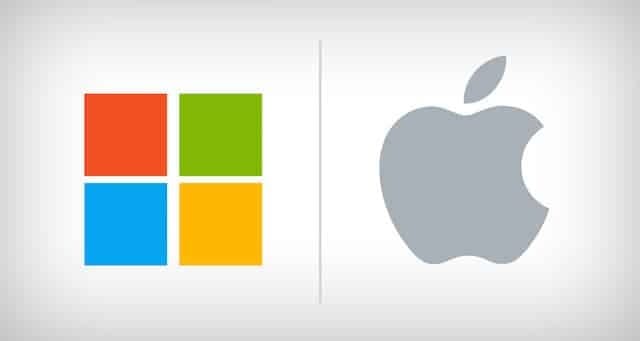How Microsoft Could Beat Apple in the Unified Work/Home Ecosystem

Apple is the leader of the ecosystem right now, especially in the home. The iPhone, iCloud, iTunes, and AppleTV combination is the one everyone is chasing, and they only seem to be increasing their dominance.
But here’s a scenario where Microsoft crushes Apple, not only in the enterprise, but also at home. It all comes down to a single question:
If people want only one ecosystem, and Microsoft takes over the work side, and Apple owns the personal one, which will win out?
Let me start by describing what I mean by one ecosystem.
It’s five years in the future and you’ve just worked a day in the office. It’s all Microsoft, your laptop, your phone, Skype, Outlook, Office 365, etc.
During the day you’ve been talking to Cortana constantly, asking her to send emails, check your calendar, move appointments, answer calls, make calls, and so on
It’s now time to go home, and Cortana tells you that traffic is bad, and you might as well pick up those flowers before you head to the house since you’re just going to park on the freeway anyway
You ask Cortana to remind you what kind of flowers Julie Sara likes, and she reads your emails to confirm "no lilies". Good to know
So you head home, in traffic, and Cortana reads the news to you, catches you up on what happened in the real world, and plays you some music
So here’s the question: What happens when you get home?
Do you think we’re going to transition from Cortana to Siri when we walk into our front door? Nope. That’s ugly. It’ll destroy the experience on 10 different levels, e.g. not having the same access to the same information, not having the same way of telling you things, not having the same commands available, and even the voice that’s used.
It’s disruptive. People will want ONE ecosystem. One view for both work and home.
What should and will happen is that you’ll walk in and tell Cortana to put Orphan Black on the video display, and to make you a coffee (it’s going to be a long night).
You then tell her to order you some delivery from somewhere nearby that has good Indian, which she does without asking you any questions (she knows you like Chicken Masala). And you eat while you watch your show.
But then you need to get back to work. So you say,
Cortana, show me my newest emails, on the main display.
BAM. All your work emails, right where Orphan Black was a second ago.
You might ask why you couldn’t do that with Siri, since she has access to your Exchange account through Mail. Well, you probably can do some, or even a lot of that, but the integration won’t be as deep as if you operate from within the Microsoft world.
You won’t be able to say,
Go to my primary SharePoint and pull the document Jullie talked about in her latest email. Create a copy of it on my behalf, and make sure only Chris and Rick can view it. Then save a copy to my main directory.
The deepest AD integration, the full SSO experience—these things will be far better if you are operating from inside of Microsoft’s ecosystem. This is why it makes more sense that the home system they’re talking to will not be AppleTV, but instead Xbox Kinect. You’ll have the same entertainment hub functionality as with other options, but with Microsoft you’ll have the full enterprise integration and consistent Cortana experience as well.
It will be one ecosystem that people use for their watch, their phone, their personal assistant (Siri/Cortana/Her), and the integration will become an increasingly core part of peoples’ lives. It’ll be a big deal to switch from Google’s world to Apple’s, or from Apple to Microsoft, and people won’t do it without a good reason.
So this is why I think Apple could be in trouble: it’s not that Microsoft’s individual features or UIs or anything will be that much better—it’s the fact that they will own the enterprise where people spend most of their computer time, and people will simply not want to switch ecosystems when they get home.
In short, either Siri or Cortana are going to win this battle, and I think that if work is going to eat home, or home is going to eat work, it’ll be the former. It’s easier for Microsoft to follow you home than it is for Apple to penetrate the enterprise.
Apple has a good thing going right now, but the battle is not for individual products—it’s for the unified work/life ecosystem. And in that space they to watch the Microsoft threat very carefully.
Notes
Thanks to Sasa for talking through this and developing the idea with me.